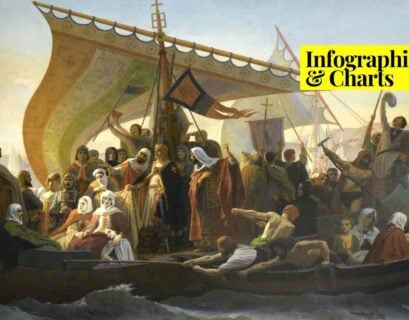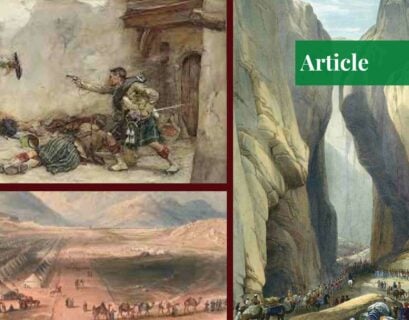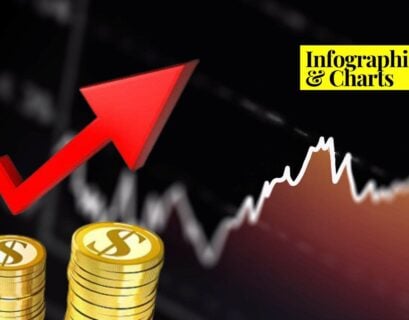Mr Yasir Wazir is a recent graduate of International Relations from Iqra University Islamabad.
Introduction
Europe has always been an integral player in world politics with regard to many events that have happened over the course of time, but intra-European politics, especially Brexit by the UK, is also quite an erratic adventure when analyzed chronologically. The foreign policy of Europe when interacting with each other is based on three pivotal factors: religion, power, and the economy.
Each factor has worked as both a binding and a dividing catalyst for intra-European foreign policies over the period of time. The term ‘binding’ refers to the notion that all of these factors have assisted Europeans to stay in amalgamation, and the term ‘dividing’ means that the same factors have worked as a divisive tool in separating the European nations from each other and creating wars and mayhem.
The recent ‘Brexit dilemma’ may be referred to as the result of the economy working as a dividing factor, but this claim can only be substantiated after a detailed assessment of these three important factors—religion, power, and the economy—and the impact these factors had on the politics of Europe.
A Historical Overview of Religion
Religion has served as a prominent factor in intra-European politics and its social and cultural transactions. Although the role of religion dates back to the advent of civilizations in the European continent, for the sake of elaboration, the Holy Roman Empire is an adequate choice for us to grapple with the intricate role of religion in European history.
The Holy Roman Empire was founded in 962 AD and ended in 1806 AD, stretching from modern-day Italy to Denmark and from France to Poland, which covered the majority of today’s Europe. During this time period, the pope or, more specifically, the papacy played a central role in anointing the Holy Roman Emperors.
The first emperor of the Holy Roman Empire, Otto I, was named by the pope of that time to rule. Thus religion worked as a binding force at this point in time, but these early years of the empire were dominated by the never-ending struggle and strained relationship between popes and the emperors.
These tensions went on for almost the coming six centuries, but things took a sharp turn in the 15th century when people had had enough of the monopoly of a single denomination, that is, Catholicism. Martin Luther wrote his famous ‘95 theses’ criticizing the orthodox and its injustices with Protestants. This was later termed as the ‘age of reformations or Protestant reformations’.
In the ensuing years, the bloody ‘thirty years’ war’ took place which resulted in thousands of casualties in the European continent. The war ended with the treaty ‘Peace of Westphalia’ which resulted in the introduction of sovereignty and autonomy and some religious freedoms.
It implies the fact that the Europeans were no longer fans of the notion that religion reign supreme and hence rebelled against it instead of opting for the separation of state and church. After the Peace of Westphalia, tensions still remained and the change was not overnight. Gradually, the orientation of intra-European foreign policies shifted towards real politick also known as power politics.
Power Play
With the genesis of a modern nation-state in the 19th century, the role of religion in state affairs slowly fizzled out and Europe was no exception. The struggle for power began in the European political landscape. Fashion was now changing and most of the states at that time indulged in the procurement of modern weapons and ammunition with increasing industrialization and capitalism.
An official arms race started between European giants and their foreign policies were completely based on power maximization. Secret diplomacies and clandestine alliances were rampant which increased the trust deficit exponentially. At the onset of the 19th century, the dominant power in Europe and, by extension, in the whole world was Great Britain.
In the meantime, Germany unified under the leadership of Bismarck in 1871 and was on the verge of becoming a power with ample potential to challenge dominant Britain. There was a security dilemma that forced Britain and Germany into an arms race and various alliances were made between European and non-European countries which later culminated in the ‘Great War’ or World War One (WW1).
This war resulted in millions of civilian and military casualties. The establishment of the League of Nations was seen as a silver lining, but the hopes soon vanished because the US did not join it. Woodrow Wilson gave the idea of the said institution and recommended interaction amongst states to reduce wars.
However, World War Two (WW2) occurred just after 20 years. This time period of 20 years is aptly dubbed by Edward Hallett Carr as “the death of Wilsonianism” in his book “the 20 years’ crisis”. The European states then decided to part ways with power politics, at least partially, and turn towards the economy as the driving factor behind their foreign policies and their social and cultural transactions and interactions.
Economic Might
At the end of World War Two, Europe was in shambles. The successive wars left an everlasting imprint on Europe in particular and the world in general. Europe then decided to try economic integration as a source of unification in the social, economic, and political spheres because it had realized that power politics was not a viable tool and that economic interdependence might prevent the horrors of the two wars from returning.
Alas, it took some 40 million casualties for this realization. For this purpose, six European states established the European Coal and Steel Community (ECSC) which was formally ratified at the ‘Treaty of Paris’. It was intended to increase economic integration amongst these six states: France, West Germany, Luxemburg, Belgium, Italy, and the Netherlands.
This idea was first proposed by the then French Foreign Minister Robert Schuman to try and end the long-standing historical enmity between Germany and France. Gradually, more and more European countries joined this commission and it immensely reduced the chances of war and increased economic cooperation. The ECSC resulted in a new phenomenon known as ‘supra-nationalism’ which shadowed the chauvinistic and jingoistic tendencies of European states.
In 2002, the ‘Treaty of Paris’ expired and the ECSC was succeeded by European Union (EU). The ECSC worked as a catalyst in bolstering the economic ties amongst the European countries and Europe was now transitioning from a war-mongering continent to a pluralistic and democratic continent. The European Union is a political and economic union of 28 member states which are located in Europe.
The EU is the product of ECSC and European Economic Council established in 1957 with the ‘Treaty of Rome’. The EU has developed ‘an internal single market’ and ‘standardized laws’ that are applicable to all of its member states. In a way, they have managed the anarchy in Europe by establishing a central authority which is tantamount to a European central government.
So far the European Union has fared very well in managing and fostering strong ties amongst the Europeans in all walks of life, but the recent ‘Brexit dilemma’ implies the notion that ‘economy’ is again working as a dividing factor for intra-European politics. It can be inferred that the exit of the UK from the EU is a signal that the ‘economy’ precipitated this process.
Why Brexit Happened?
When the European Economic Council (EEC) was formed in 1957 with the ‘Treaty of Rome’, Britain was not its member because of the then French president Charles De Gaulle’s obstinate disliking for the UK. He blocked the UK’s entrance to the EEC in 1963 and 1967. Shortly after De Gaulle’s demise, the UK joined the EEC in 1973 and became its member.
Tensions brewed up after the first two years of the UK in the EEC and it held its first-ever national referendum to decide whether people wanted to stay in the EEC or leave it. 67% of the population voted in favor of staying in the EEC. Later, the EEC morphed into the EU.
The UK almost persistently tried to exempt itself from certain regulations of the EU. For instance, the UK didn’t open its borders in 1995 like the other states. However, the event that set the foundation for Brexit in motion was the ‘Lisbon Treaty’ in 2009. Under Article 50 of this treaty, the EU gave its member states the choice to leave or to stay. At the same time, there were severe recessions in the global economy.

The situation in Greece worsened and it faced several structural problems whenever it got bailout packages from the EU. After the great recession, came the crises of migrants fleeing the war-torn areas of the Middle East and Africa. With the increase in immigration, the UK came under immense stress as anti-immigrant and nationalist waves were quite rampant.
Under pressure from the public, the UK government, just like other EU member states, enacted certain laws to ensure that the immigration crisis was tackled well. During his re-election campaign in 2015, David Cameroon promised that he would hold a referendum about the stance of the UK on Brexit if elected as prime minister. He won the elections and went on to finalize a special deal for the UK.
As was promised, he held a referendum and campaigned vociferously for staying in the EU. The UK wanted Brexit because of the economic burden, increasing population density, and a wave of terrorism that came over Europe around that time. According to the results of the referendum, 51.9 % were in favor of exit, while 48.1% were in favor of staying.
At the same time, Brexit created a myriad of problems for the UK as 62% of Scotland voted in favor of staying. Since 2016, various negotiations had been going around between the EU and the UK to materialize the Brexit and at last, the saga ended with Britain’s official exit from the supra-national organization (EU) of which it was a founding member. In this whole background, one thing is quite clear: the economy is the biggest motivating factor behind the UK’s exit from the EU.
Conclusion
The detailed exhaustion of the literature on European politics and society, when carried out chronologically, consolidates the notion that religion, power, and the economy had been the driving forces behind intra-European foreign policies all along the course of history. These factors played pivotal roles in assisting the European continent from crumbling apart, but they were also the reason behind the dividing tendencies and the politics of isolation.
The objective of this paper was to substantiate the aforementioned notion of the binding/dividing model. Brexit just didn’t happen out of the blue; there is strong historical evidence behind the fact that it happened because of the economy’s central role in dividing Europe.
If you want to submit your articles, research papers, and book reviews, please check the Submissions page.
The views and opinions expressed in this article/paper are the author’s own and do not necessarily reflect the editorial position of Paradigm Shift.


















